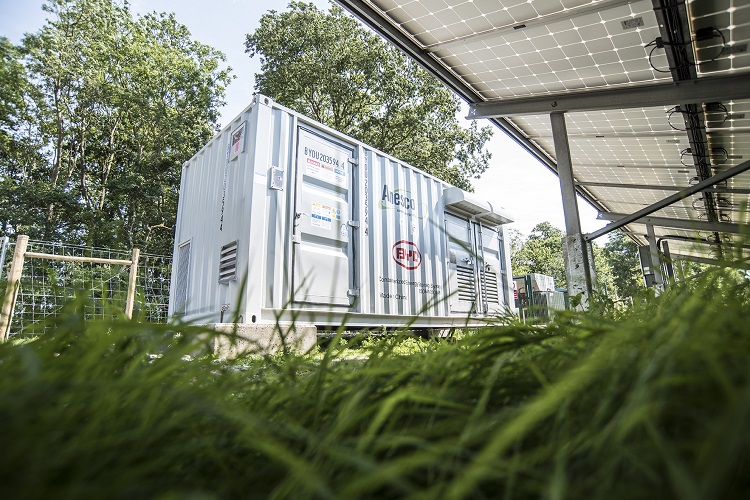A new study by Auroville Consulting compares Li-ion-based battery energy storage systems (BESS) and conventional diesel generator (DG) sets as power backup solutions for commercial and industrial (C&I) entities in Tamil Nadu. It evaluated the economic and environmental performance of the two systems and proposes BESS charged with solar as the most attractive power backup option.
For the analysis, the analysts assumed a load for the C&I entity and simulated four different scenarios based on the fuel cost and different electricity tariffs in Tamil Nadu. They compared the levelized cost of generation (LCOE) for the DG set and the levelized cost for storage (LCOS) of the BESS for different simulations of backup while considering a range of capital costs.
The results indicate that the LCOE of DG sets varies between INR 49.58/kWh ($0.62) to INR 57.63/kWh. The LCOS of BESS varies between INR 39.71-61.72/kWh when charged at a solar tariff of INR 3.95/kWh. When charged at an industrial tariff of INR 6.67/kWh, the LCOS of BESS varies between INR 43.71-65.71/kWh, and when charged at a commercial tariff of INR 8.40/kWh, it varies between INR 46.25-68.25/kWh.
The LCOE of the DG set is found to be most vulnerable to diesel prices, while the LCOS of the BESS is largely dictated by the market prices of the Li-ion battery packs.
When considering the average capital costs of both backup systems, the analysis indicates that the per unit cost of energy from a BESS charged at the solar tariff is the most economical option for all hours of autonomy.
The per unit cost of DG is less than the per unit cost of BESS when charged from the grid at the industrial and commercial tariff for all hours of backup. However, the analysts stated, the BESS can become a more economical backup option even when charged from the grid if the state government shifts the subsidy from DG generators to BESS. (In Tamil Nadu, the state government provides capital subsidy on DG generators for medium, small, and micro enterprises.)
The BESS and DG were also assessed in terms of externalities. Emission levels for BESS varied depending on the source of electricity used to charge the system. BESS charged with solar provides the cleanest form of backup power since no emissions are generated during power generation.
This content is protected by copyright and may not be reused. If you want to cooperate with us and would like to reuse some of our content, please contact: editors@pv-magazine.com.









2 comments
By submitting this form you agree to pv magazine using your data for the purposes of publishing your comment.
Your personal data will only be disclosed or otherwise transmitted to third parties for the purposes of spam filtering or if this is necessary for technical maintenance of the website. Any other transfer to third parties will not take place unless this is justified on the basis of applicable data protection regulations or if pv magazine is legally obliged to do so.
You may revoke this consent at any time with effect for the future, in which case your personal data will be deleted immediately. Otherwise, your data will be deleted if pv magazine has processed your request or the purpose of data storage is fulfilled.
Further information on data privacy can be found in our Data Protection Policy.